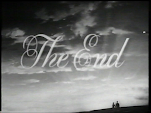
Apologies for the lack of updates recently. Two main reasons for the drought are that I have been busy with helping prepare the new issue of Movie: A Journal of Film Criticism (which should be appearing before too long!), and managing/contributing to Alternate Takes.
Given this, allow me to indulge myself by pointing to a piece which addresses a subject I've written on in both these places: 'quirky' American indies. I first attempted to tackle this concept with this rather informal piece over half a decade ago (yikes...), then approached the matter far more extensively and academically in this article for Movie. I have now written another piece for Alternate Takes which strikes a tonal balance somewhere between these other two.
There's something fitting about this, and not only because I myself am interested in such balance in criticism, but also because the quirky itself - as I define it - is a mode of filmmaking defined by balance; as I put it in the most recent article:
this is surely a sensibility made up of tensions: between indie and mainstream, comedy and drama, naturalism and artificiality, innocence and experience, and - perhaps above all - ‘irony’ and ‘sincerity’.
I recently rewatched a movie that seems to me to reflect this fact particularly clearly: Mike Mills' Thumbsucker (2005). This film follows Justin (Lou Taylor Pucci), a suburban Oregonian teenager living with his parents (addressed only by their first names, Audrey [Tilda Swinton] and Mike [Vincent D'Onofrio]). Putatively structured around Justin's struggle to let go of the titular childhood habit, the film is part bildungsroman, part a modest tapestry of unsatisfied American lives. In their own way, each character in the movie struggles with the pains of either growing up or growing old, and with questions of at what point goals transform into fantasies, coping mechanisms into crutches.
The movie can usefully be seen as expressing many of the productive tensions often found within the 'quirky' sensibility. Firstly, as a semi-independent film (produced independently, distributed by major subsidiary Sony Pictures Classics), the film unsurprisingly indulges both commercial and more niche impulses: starring an unknown actor, yet also populated by major players; handling drug use and addiction fairly lightly, but concerned to wean its characters off the lifestyles they encourage; dealing primarily in disillusionment, yet offering the possibility of redemption. The movie lives a million miles from, say, the wholly bleak teenage wasteland of a film like Gummo (1997), but also far from the milieu of mainstream teen pictures. Narratively, Thumbsucker emerges as an amalgam between a meandering patchwork piece and a more goal-oriented mode of storytelling - an approach in fact entirely appropriate to depicting the lives of purposeless characters refusing to give up entirely on the search for 'purpose'.

Thumbsucker's use of the tonal possibilities common to movies of its ilk locates it in a similarly ambivalent middle ground. This comic drama is nowhere near so whimsical as, for instance, Napoleon Dynamite (2004), nor so comparatively naturalistic as, for example, The Squid and the Whale (2005), though contains elements of both. One measure of this is that it can encompass both a vignette about anal drug-smuggling gone gorily awry, and pretty, pink-tinged dream sequences set in something like a candy-floss Heaven. This is very much a movie struggling to temper grounded reality with the liberating possibilities of fantasy, something which again reflects a central thematic concern.
Virtually all the characters pursue artificial solutions to their problems: prescribed medication, corny psychological mysticism, dreams of a lost career, desire for a beautiful star from “out there in 'picture land'” (as Mike puts it), and so on. In their stymied dreams of greatness, these people in a sense feel like indie characters striving to achieve the eminence of Hollywood heroes - a predicament familiar from the work of Wes Anderson, but one that feels slightly less safe when taking place in a less fanciful and hermetic context than Wes's worlds. The film may contain escapist dream sequences, but we never forget that they are indeed dreams - temporary flights from a far more disappointing reality.
Yet, this being a 'quirky' movie, it does not finally encourage us to despair. All the characters are subject to a degree of criticism from the film - Justin himself often appears misguidedly petulant towards, rather than unfairly wronged by, those around him - but we are ultimately nudged towards sincere empathy rather than ironic disengagement. The tension between pessimism and optimism at the film's heart is neatly conveyed by the songs which punctuate it - half of them having been written by the wistful Elliott Smith (who committed suicide before completing the project), the remainder by Tim DeLaughter of the notoriously joyful Polyphonic Spree. Were Smith to have scored the film in its entirety, it would undoubtedly have a different feel than it does. As it is, somberness coexists here with a quixotic triumphalism, and we are permitted to leave the film's world with a characteristically quirky sense of qualified, but nonetheless enveloping, hope, as Justin runs excitedly towards an uncertain future.
.

no one is 100% Elliott Smith killed himself...if you check the final report from the LAPD you'll find it's inconclusive. Not too many people commit suicide by sticking a knife in their chest TWICE...the only other person there was a girlfriend whose story is suspect
ReplyDeleteThis comment has been removed by the author.
ReplyDeleteFair point. Perhaps the reference should simply be to his death...
ReplyDelete